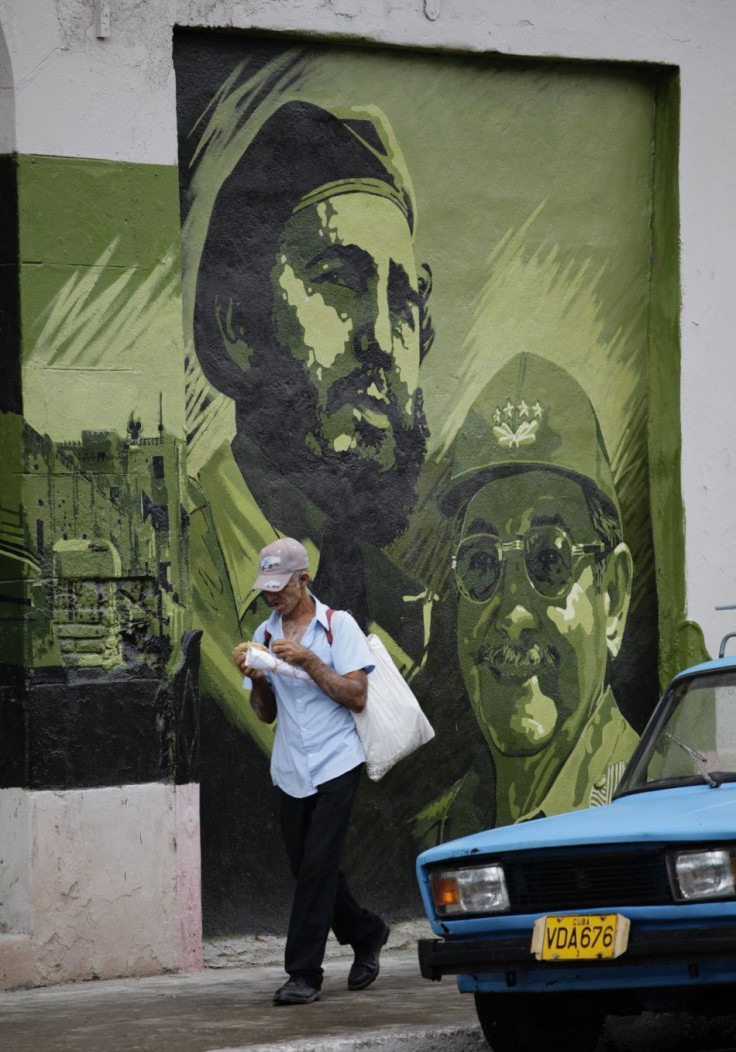U.S. Airlines Increase Commercial Flights to Cuba: How You Can Reserve a Spot

Cuba is no longer completely off-limits to Americans who are interested in traveling to the Caribbean island that was once a playground for the wealthy.
Marazul Tours, a travel agency based in Miami, Fla. that specializes in trips to Cuba, has restored direct flights between select U.S. airports and Havana, Cuba. The agency, which has partnered with Delta Air Lines, announced on its Web site that direct flight service from New York City's John F. Kennedy International Airport to Havana began running as of Sunday. The company has already led some excursions departing from Miami in October.
Beginning on Dec. 7, Marazul will also begin offering weekly flights departing from Atlanta, Georgia's Hartsfied-Jackson International Airport, in addition to Miami and New York City. All in all, Marazul will fly to Cuba about nine times a week once flights begin from its Atlanta hub.
Several other charter companies have been authorized to conduct group tours to Cuba, although Marazul is currently poised to offer more flights than its competitors. In June, Tom Popper, the director of the charter company Insight Cuba, told The New York Times the company had been hit with an overwhelming demand of Americans vying to reserve a spot in one of its tours.
Pent-Up Demand
It's the forbidden fruit, Popper said. It's 50 years of pent-up demand for a country that 75 percent of Americans really, really want to travel to.
While Cuban-Americans who have family in Cuba have been able to travel to the island for years, travel by U.S. citizens has been restricted since 1963, aside from a five-year period where restrictions were loosened for educational, religious and cultural exchanges under the administration of President Jimmy Carter in 1977. President Ronald Reagan once again made Cuba off-limits to most Americans in 1982.
The U.S. began limiting travel to Cuba following the Cuban Revolution in 1959, when the government was overthrown by Communist forces led by Fidel Castro. In 1963, travel restrictions were officially imposed under the Trading with the Enemy Act, which was enacted in 1917 to restrict trade with countries hostile to the U.S.
Although it is not technically illegal for Americans to actually travel to Cuba, the U.S. prohibits its citizens from spending money in the country unless they fall into one of the groups with legal reasons to go there.
Now, thanks to policy changes from the Obama administration, the U.S. Treasury Department will once again begin granting so-called people-to-people licenses, which allow U.S. citizens who do not have a special status as journalists, students or scholars to visit the country with a licensed operator.
It is still illegal for an ordinary American to hop on a plane bound for Cuba unless they are authorized to travel with licensed tour groups, which are lawfully bound to organize trips that emphasize exploring Cuban history and culture, rather than allowing visitors to lounge on its beaches.
While, under the new rules, Americans can get permission to travel to Cuba through licensed charter companies instead of the U.S. government, those traveling for humanitarian, educational, religious or cultural reasons are still required to apply for permission case-by-case through the Treasury Department.
By the end of the year, four airlines -- including Delta -- are expected to operate weekly flights to Cuba, according to The Wall Street Journal. American Airlines has been offering flights to Cuba for years, while JetBlue Airways began flying to the island last month. United Continental Holdings, like Delta, has resumed weekly flights to Cuba after a seven-year hiatus.
Roughly 400,000 Americans Expected to Travel to Cuba This Year
The newspaper reports charter companies expect about 400,000 people will travel between Cuba and the U.S. this year, compared to 250,000 in 2010.
The U.S. State Department reports the Cuban government has been devoting significant resources toward reviving its tourism sector, which one Cuban official reportedly said is the heart of the economy. Close to 2.5 million tourists visited Cuba in 2010, with a majority of those travelers hailing from Canada and the European Union.
© Copyright IBTimes 2024. All rights reserved.





















